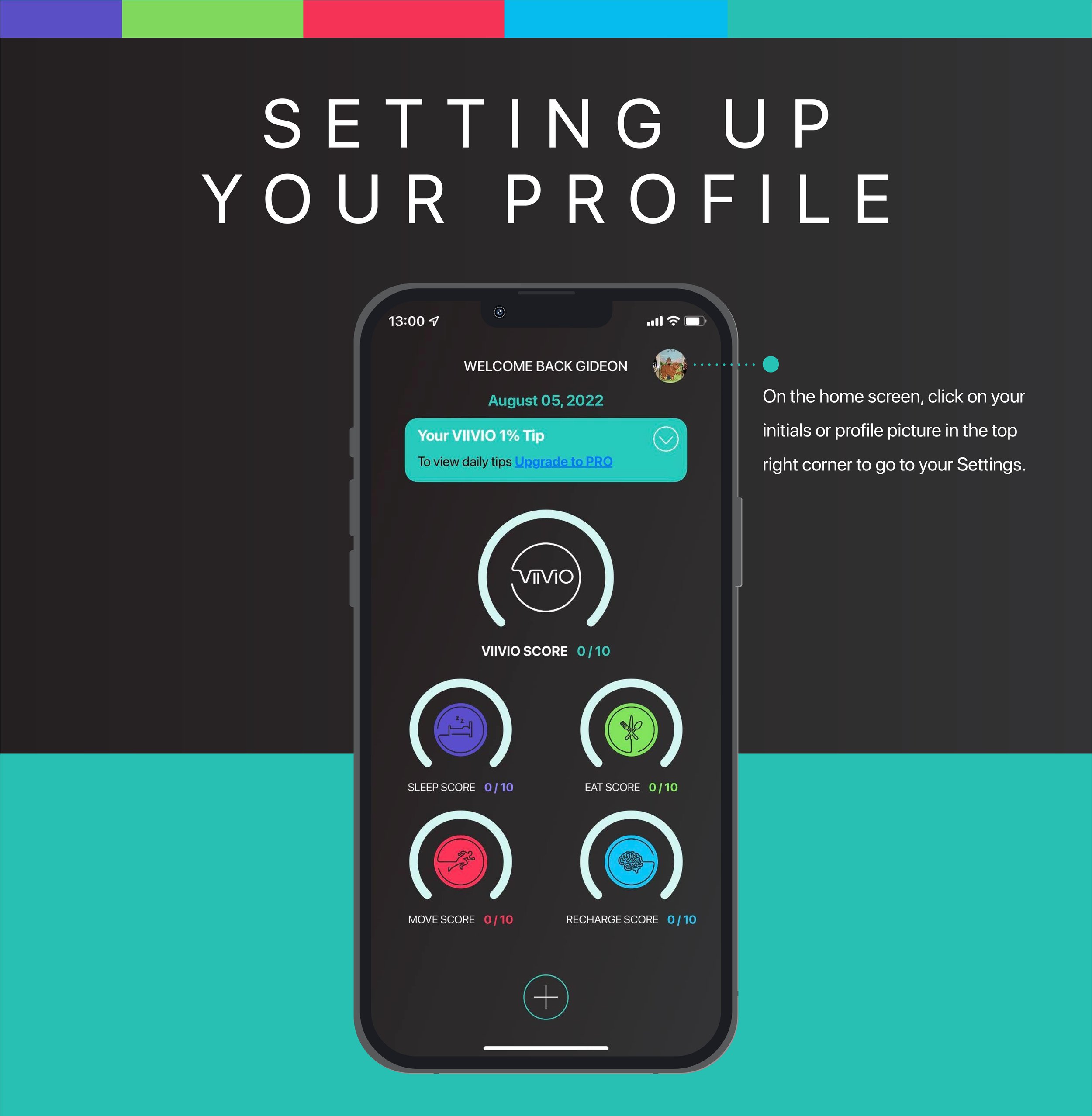Getting to know VIIVIO
Now that you have the app installed, you’re ready to take your health and performance to the next level!
This page will give you a basic overview of the app, walk you through setting up your profile, and teach you how to navigate the home screen.
When you open up VIIVIO, you’ll see your home screen, which looks like the image below:
If you click on your initials or profile picture in the top right corner, you will be taken to your profile page:
Under My Profile, you can enter all of your personal information including height, weight, birthdate, and gender. We welcome all genders to VIIVIO and our algorithm will give you a more accurate score and personalized recommendations based on the information you give us. You also have the option to choose a profile picture.
Under My Goals, you can set daily goals in each of the four categories:
Sleep: Hours of sleep you’d like to get each night. Adults need between 7-9 hours of sleep each night, with 7-8 hours being enough for most people. Making it a goal to get at least 7 hours is a good starting point. If you are someone who needs more sleep, you can always adjust it.
Move: The number of steps you’d like to hit each day. This goal will vary greatly depending on where you are in your fitness journey. 10,000 steps/day is a lofty goal we can all strive for. However, if you’re less active, even adding in light-moderate exercise can significantly decrease your risk of all-cause mortality. Start with 5,000 steps per day and increase this number as you improve your fitness.
Eat: Cups of water you’d like to drink each day. A good rule of thumb is to drink half your weight (in pounds) in ounces of water each day. For example, a 150 pound person would need 75 oz. or approximately 9 cups. A 200 pound person would need 100 oz. or approximately 12 cups.
Recharge: Your target resting heart rate. A higher resting heart rate is associated with greater risk of heart disease, stroke, cardiovascular disease, and all-cause mortality. Having a resting heart rate of 60 beats per minute is a good goal to strive for, however not one that we can consciously control. Many factors will influence your resting heart rate including stress, diet, sleep, and fitness. As you improve in other areas of health, your resting heart rate will decrease.



